Mozart: Symphony No.39 / Schubert: Symphony No.2 (Celibidache)
Introduction
Performances of Mozart`s late, and very great 39th symphony, Schubert`s early, and `could do better` 2nd symphony, and a bonus of Cherubini`s overture to `Il Portatore d`acqua` from 1800 (or to give it its full name `Le due giornate ovvero il Portatore d`acqua`....apparently).
All three pieces were, I believe, played in different concerts (due to the vastly different audience figures and various other instruments dotted about the stage, due to be used for larger works later on I would imagine).
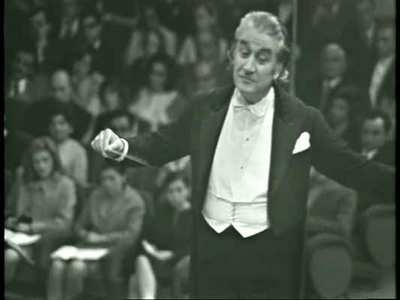
Video
A perfectly reasonable 1960s Italian TV recording, with some video problems (mainly jumps), about which we have been forewarned in the booklet.
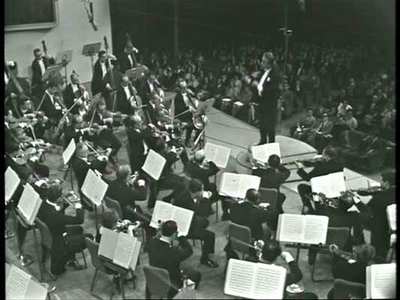
Audio
Ranges from a passable mono to a very wobbly and quite disturbed mono. Again, the quality of the TV sound is in no way related to studio recordings of the time, which is a great shame. Much of the musical depth is lost, due to everything being treble-oriented.
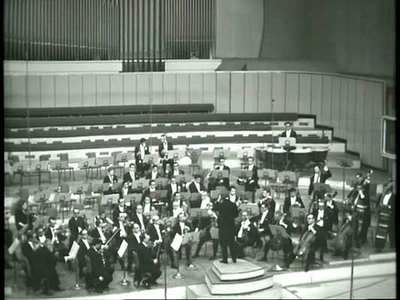
Features
I suppose the Cherubini can be counted, as it`s not mentioned on the main cover, and described as an `Extra feature` inside.
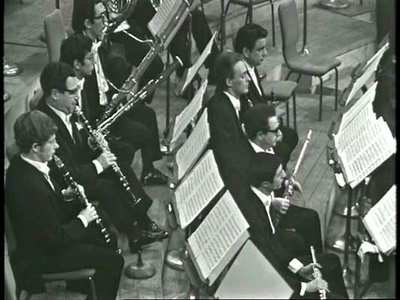
Conclusion
We are often told of `the genius of Celibidache`, and I`m sure that quite often, this was evident in many of his live concerts. Of course, conducting without the score isn`t necessarily as impressive as it`s made out to be (or indeed, particularly safe in many cases), but Celibidache was famous for this, and quite often created electric accounts of overly-familiar works, making them seem fresh and exciting.
Unfortunately, this was not to be here.
The Mozart is, I`m afraid, one of the most uninteresting performances of this symphony I have ever heard. Celibidache, who is also famous for taking things on the leisurely side, has gone over the top in this respect. There is little in the way of forward momentum in any of the movements, and the lazy playing of the orchestra creates an almost amateurish feel to the whole piece. I defy anyone to explain the `genius` at work here.
Allegros are only just that, with little evidence of life anywhere (the Minuet is best left unmentioned). It certainly doesn`t help that Celibidache insists on emphatically beating in 2 throughout the Finale, leaving everything trapped within the barlines rather than allowing the music to speak for itself.
The Schubert fares a little better, although is still held back by the leaden beats. He seemed to be closer to the band than he was in the Mozart. There`s no excuse to be so far away when there`s no stand between the conductor and players, and so at least the close proximity here created a more immediate and exciting feel about the whole performance.
The Cherubini extra suffers from a problem with the overall recorded sound, which fluctuates quite rhythmically, but not generally with the music. It`s not a very interesting work, and is played (and conducted) accordingly.
Historical recordings are always interesting, especially when on TV or film, but when you find yourself wondering about the lady sitting on the front row all on her own, with her black bag firmly rooted to her lap, or the large chap a few rows back reading his programme, you have to wonder whether some releases are worth it.
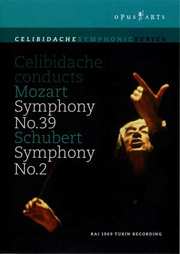
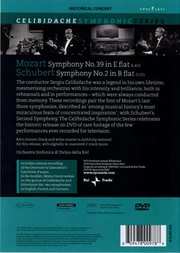




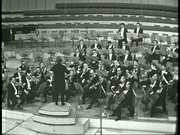
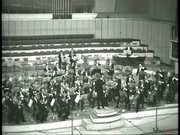
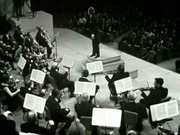
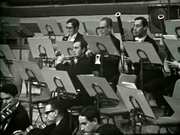
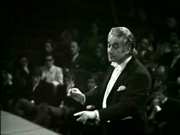
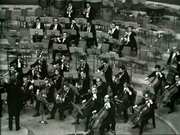
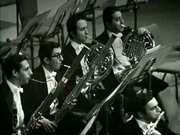
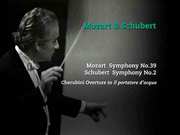






























Your Opinions and Comments
Be the first to post a comment!